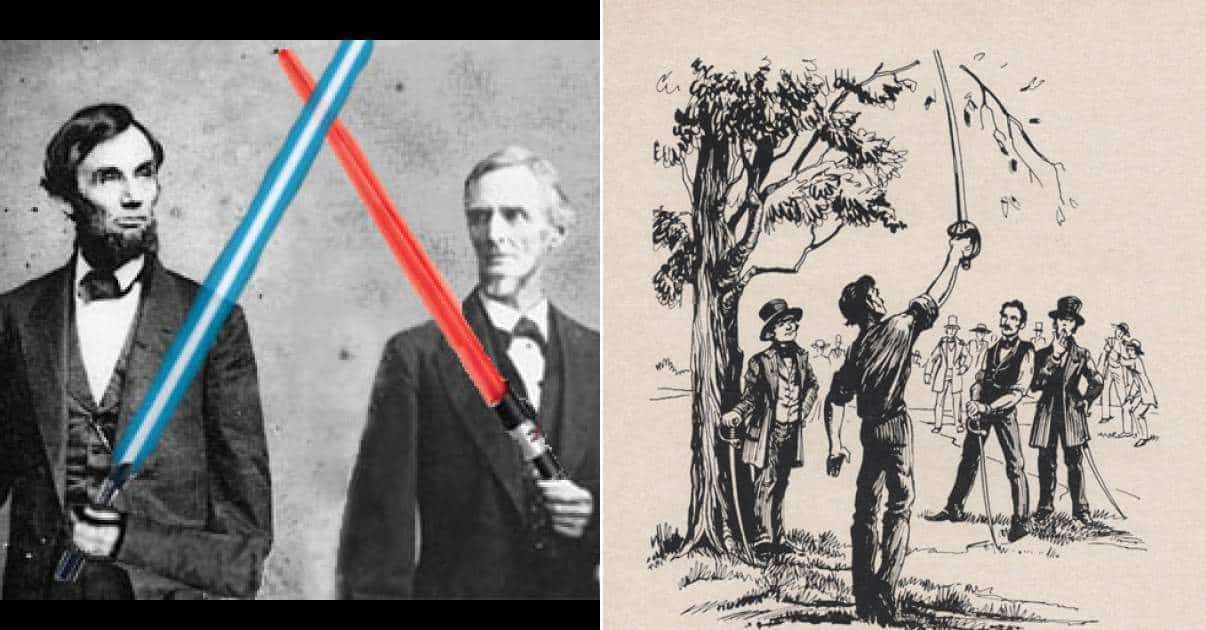In 1842, Abraham Lincoln turned James Shield’s life upside down. But how could one of America’s favorite presidents become such a negative pivot for somebody’s life? It all began in 1837. Shield’s life so far could be defined by the Panic of 1837, a financial crisis in the United States that created a major recession lasting nearly 10 years. In the uncertain American climate, profits, prices, and wages went down – while unemployment steadily increased. As an auditor, it was Shield’s job to correct the state finances after this tumultuous financial disaster. During the time, Shield sided with the view that the Illinois State Bank should be closed. This meant that the only acceptable currency would be gold and silver- and the typical Illinois resident did not have gold weighing down their pockets.
This was the political environment in which Abraham Lincoln found himself when he unsuccessfully sought election to Illinois State Legislature in 1832 – among many other controversies. He had first been elected to the State Legislature in 1834 and had been reelected in 1836, hurling him into the economic chaos created by the current administration. He decided to act – so he took to paper.
The letter Lincoln wrote was directed to none other than James Shield. Lincoln, who was no stranger to financial struggle, appealed to the side of the impoverished citizens. In the letter, Lincoln wrote scathingly:
“I’ve been tugging ever since harvest getting out wheat and hauling it to the river, to raise State Bank paper enough to pay my tax this year, and a little school debt I owe; and now just as I’ve got it…, lo and behold, I find a set of fellows calling themselves officers of State, have forbidden to receive State paper at all; and so here it is, dead on my hands.”
 Abraham Lincoln and James Shields, metalfloss.com
Abraham Lincoln and James Shields, metalfloss.com
Pretty much everyone knows who Abraham Lincoln is. Well, pretty much everyone knows a piece of Abraham Lincoln. We all know that Abraham Lincoln was the 16th President of the United States. We also know that he saved the Union through the Civil War and ended slavery. However, what a lot of people don’t realize about Abraham Lincoln is his other side. Lincoln had a dark and dirty sense of humor that he showed to everyone, a side that people can learn through reading Lincoln’s letter aimed at Shields. Also, Abraham Lincoln knew how to have a good time and was not afraid of a good fight, which is a piece of Lincoln that will be shown later in this story.
Not as many people might know who James Shield is. Besides what has already been mentioned, Shields was a politician. He was born in 1806, which is three years before Abraham Lincoln. As a politician, Shields was a Democrat and served as a United States Army Officer and a United States Senator who served three different states. In fact, Shields is the only politician to serve in three different states throughout his political career. These states were Minnesota, Illinois, and Missouri.

The relationship between James Shields and Abraham Lincoln was one which changed over time. Lincoln worked with Shields in order to help the enormous debt problem in Illinois because of the Panic of 1837. During this time, Lincoln and Shields had a great friendship. But once Shields became the State Auditor, the relationship cooled. Lincoln started to disagree with a lot of decisions Shields was making. One of these decisions was closing the Illinois State Bank. Therefore, Lincoln did the only thing he could think of, he attacked Shields through a letter written to the editor. Many people felt Shields was arrogant and eccentric. For Lincoln, this made Shields an easy target.

